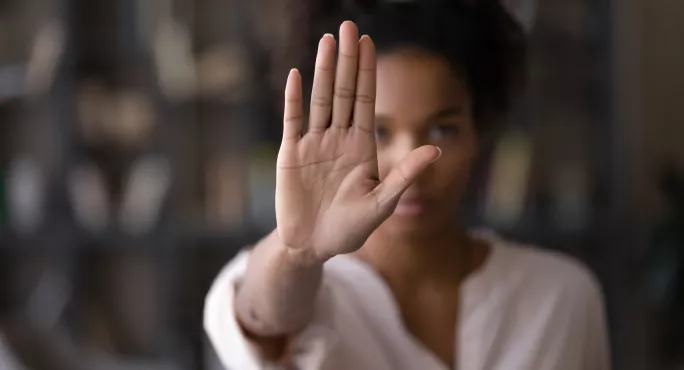Nearly 3/4 of female teachers experience misogyny in schools

More than seven in 10 female teachers have experienced misogyny in schools, according to a new survey by the NASUWT union.
Nearly half of the female teachers surveyed (45 per cent), who said they had experienced misogyny, reported that a member of their school’s senior leadership team were to blame, while 58 per cent said pupils were the perpetrators.
The union released the findings ahead of a debate on a motion on misogyny in schools, scheduled to take place at its annual conference in Birmingham today.
Of the 1,586 female teachers surveyed, 72 per cent said they had experienced misogyny in their school.
- #TeachersToo: ‘Boys wrote rape threats in books they knew I’d open’
- Tougher safeguarding rules: All teachers need to know
- Exclusive: Rape and revenge porn in secondary schools
More than half of those surveyed (53 per cent) said they didn’t feel their school or college was doing enough to tackle the problem.
Sexual and other forms of physical violence were reported in 3 per cent of cases.
Just under half (45 per cent) of respondents who said they reported misogyny to their school said no action was taken and one in five teachers (20 per cent) said they were not believed or that their claims were dismissed.
A problem throughout schools
Members of NASUWT who took part in the survey said the misogyny they had experienced came from across the school community.
Almost six in 10 (58 per cent) said they had experienced misogyny from pupils, with one anonymous respondent saying pupils had asked whether it was their “time of the month” and made comments of a sexual nature about teachers’ appearance.
The same respondent said pupils had also made comments about “things they deem as socially unacceptable, like lack of make-up and chin hair”.
Almost half (45 per cent) said they had experienced misogyny from members of their school’s senior leadership team, and 42 per cent said other teachers were the culprits.
One respondent said male colleagues intimidated female teachers and students.
Another 30 per cent of those surveyed reported experiencing misogyny from their headteacher and 27 per cent from pupils’ parents.
A number of anonymous respondents said they had experienced discrimination for having children, with one reporting that she had been told “not to go for promotion, as I’d voiced that I’d like to have children soon”.
Teachers experience intimidatory and undermining behaviour
When asked to expand on the nature of the behaviour experienced, more than three-quarters of responses (76 per cent) highlighted intimidatory, undermining or unprofessional behaviour.
More than half experienced comments about their ability (51 per cent), and over a third about their intellect, body and teaching style (33 per cent, 32 per cent and 30 per cent respectively).
Just under a third (29 per cent) had received comments about their clothes.
The way misogyny manifested itself was mostly verbal (89 per cent), the survey showed, but 60 per cent said they had experienced it via non-verbal behaviour or body language.
One respondent told NASUWT: “A male student looked me dead in the eyes and asked if I’d ever been raped.”
One in 20 said the misogyny had been posted on social media and, of those, Facebook, WhatsApp and TikTok where most commonly mentioned as the platform used.
Gender a barrier to progression
When it came to career and job opportunities, four in 10 teachers believed misogyny led to a lack of promotional opportunities, and more than a quarter (27 per cent) believed it prevented them achieving higher salaries.
One respondent was told she would never become senior management as she had a child, while another said senior leaders were dismissive and undermining of female teachers in front of male pupils.
Almost three-quarters (69 per cent) felt misogyny made the workplace an unpleasant environment.
Findings are “outrageous”
Dr Patrick Roach, NASUWT general secretary, said it was “outrageous” that so many female teachers ”continue to suffer this kind of appalling abuse in their workplaces”.
He said that schools must be safe places for all staff and “no woman should ever feel harassed, scared or intimidated just by going to work”.
“Women and girls in schools and colleges must be able to feel safe, secure and respected at all times.
“Misogyny has no place in our schools and colleges, workplaces or on our streets.”
Last year, a survey by Tes revealed that more than half (55 per cent) of 1,644 secondary staff respondents had been victims of verbal sexual harassment from students.
One former teacher also spoke to Tes about her ”brutal and shocking” experience, saying: “Boys wrote rape threats in books they knew I’d open.”
You need a Tes subscription to read this article
Subscribe now to read this article and get other subscriber-only content:
- Unlimited access to all Tes magazine content
- Exclusive subscriber-only stories
- Award-winning email newsletters
Already a subscriber? Log in
You need a subscription to read this article
Subscribe now to read this article and get other subscriber-only content, including:
- Unlimited access to all Tes magazine content
- Exclusive subscriber-only stories
- Award-winning email newsletters
topics in this article



